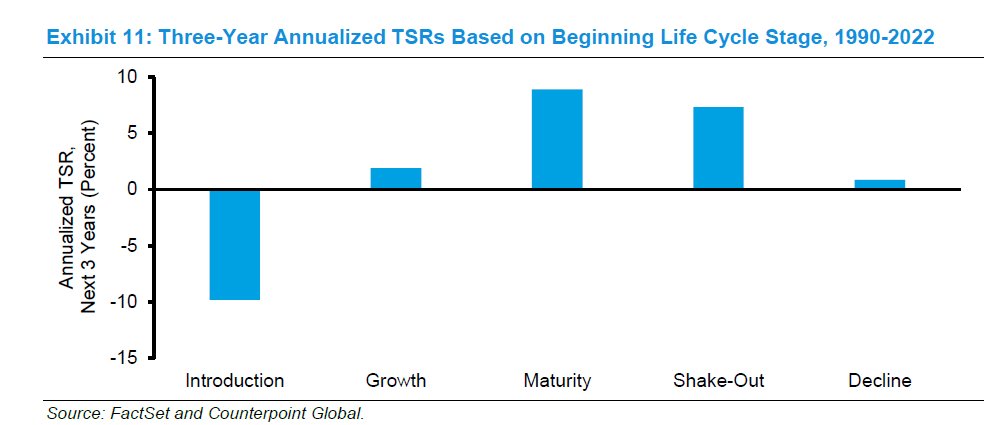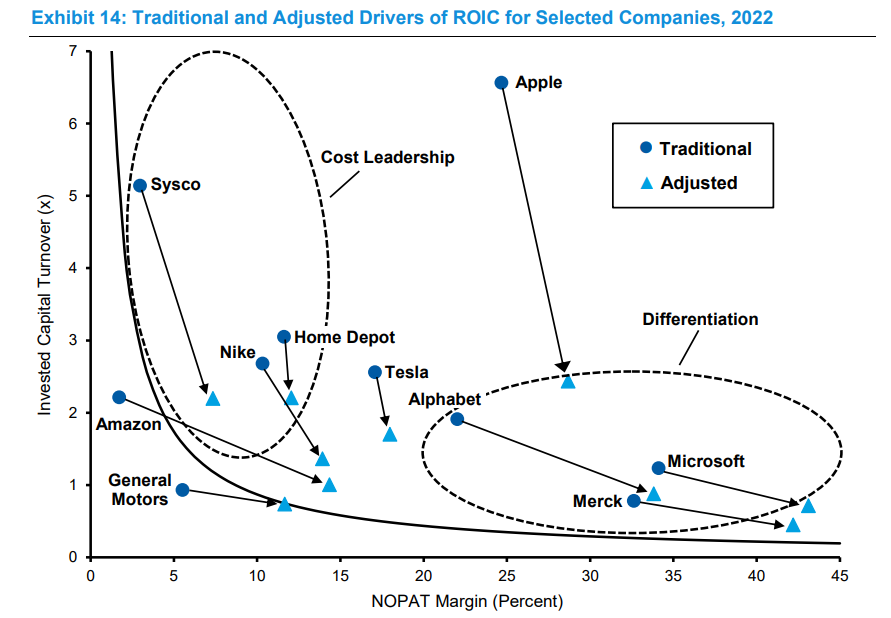Buffett on Munger: "I probably haven't talked to anyone on Wall Street one 100th of the times I speak to Charlie."
"Charlie has the best 30-second mind in the world. He goes from A to Z in one move. He sees the essence of everything before you even finish the sentence."


"Charlie has the best 30-second mind in the world. He goes from A to Z in one move. He sees the essence of everything before you even finish the sentence."



When $KO was a growth stock
"it was regarded as an excellent but fully valued"
"Buffett saw franchises that were priceless, virtually immune from inflation and capable of continued growth—compound interest machines"
"None of the flashes in the pan here like Avon or Xerox"
"it was regarded as an excellent but fully valued"
"Buffett saw franchises that were priceless, virtually immune from inflation and capable of continued growth—compound interest machines"
"None of the flashes in the pan here like Avon or Xerox"

"We realized that some company at 2-3x book value could still be a hell of a bargain because of momentums implicit in its position, sometimes combined with an unusual managerial skill plainly present in some individual or other, or some system or other."
"There are huge advantages to get into a position where you make a few great investments and just sit back. You're paying less to brokers. You're listening to less nonsense. The tax system gives you an extra one, two or three percentage points per annum with compound effects."
"Understanding both the power of compound return and the difficulty getting it is the heart and soul of understanding a lot of things."
"You know this cliché that opposites attract? Well, opposites don't attract. Psychological experiments prove that it's people who are alike that are attracted to each other. Our minds work in very much the same way." 

"A lot of dominant personalities, like me, can never play the subservient role even to Warren, who is more able and dedicated than I am."
Requires "objectivity about where you rank in the scheme of things."
Requires "objectivity about where you rank in the scheme of things."

Freddie Mac 'no-brainer'
"Only Savings & Loans could own it. And nobody could own more than 4%. Here was the perfect inefficient market. It was obvious."
"Only Savings & Loans could own it. And nobody could own more than 4%. Here was the perfect inefficient market. It was obvious."

Funny, apparently Buffett was being criticized for not giving away more?
"It's more useful for Warren to be piling it up than to be giving it away."
"It's more useful for Warren to be piling it up than to be giving it away."

"Beating the market averages, after paying substantial costs and fees, is an against-the- odds game; yet a few people can do it, particularly those who view it as a game full of craziness with an occasional mispriced something or other."
"On a net basis the investment management business together gives no value. That isn't true of plumbing and it isn't true of medicine. Warren agrees with me 100%. We shake our heads at the brains that have been going into money management. What a waste of talent."
"I join John Maynard Keynes in characterizing investment management as a low calling because most of it is just shifting around a perpetual universe of common stocks. The people doing it just cancel each other out." 

Of course..
"Warren and I are a little different in that we actually run businesses and allocate capital to them."
"Warren and I are a little different in that we actually run businesses and allocate capital to them."
"Keynes atoned for his 'sins' by making money for his college and serving his nation. I do my outside activities to atone and Warren uses his investment success to be a great teacher. And we love to make money for the people who trusted us early on, when we were young and poor."
"I've tried to imitate, in a poor way, the life of Benjamin Franklin. When he was 42, Franklin quit business to focus more on being a writer, statesman, philanthropist, inventor and scientist. That's why I have diverted my interest away from business." 

• • •
Missing some Tweet in this thread? You can try to
force a refresh














